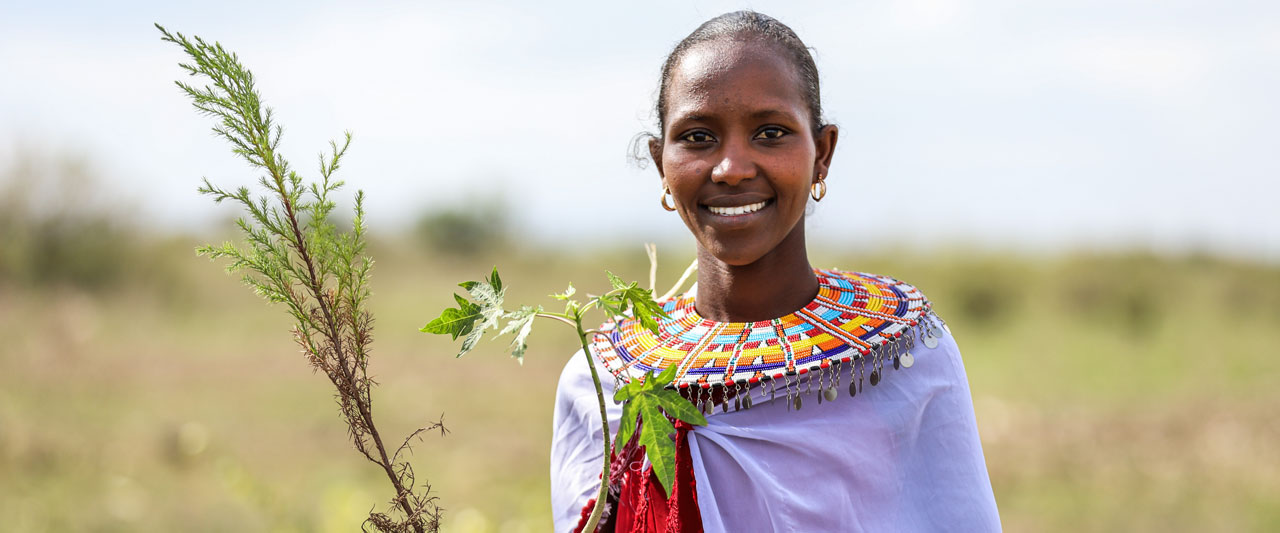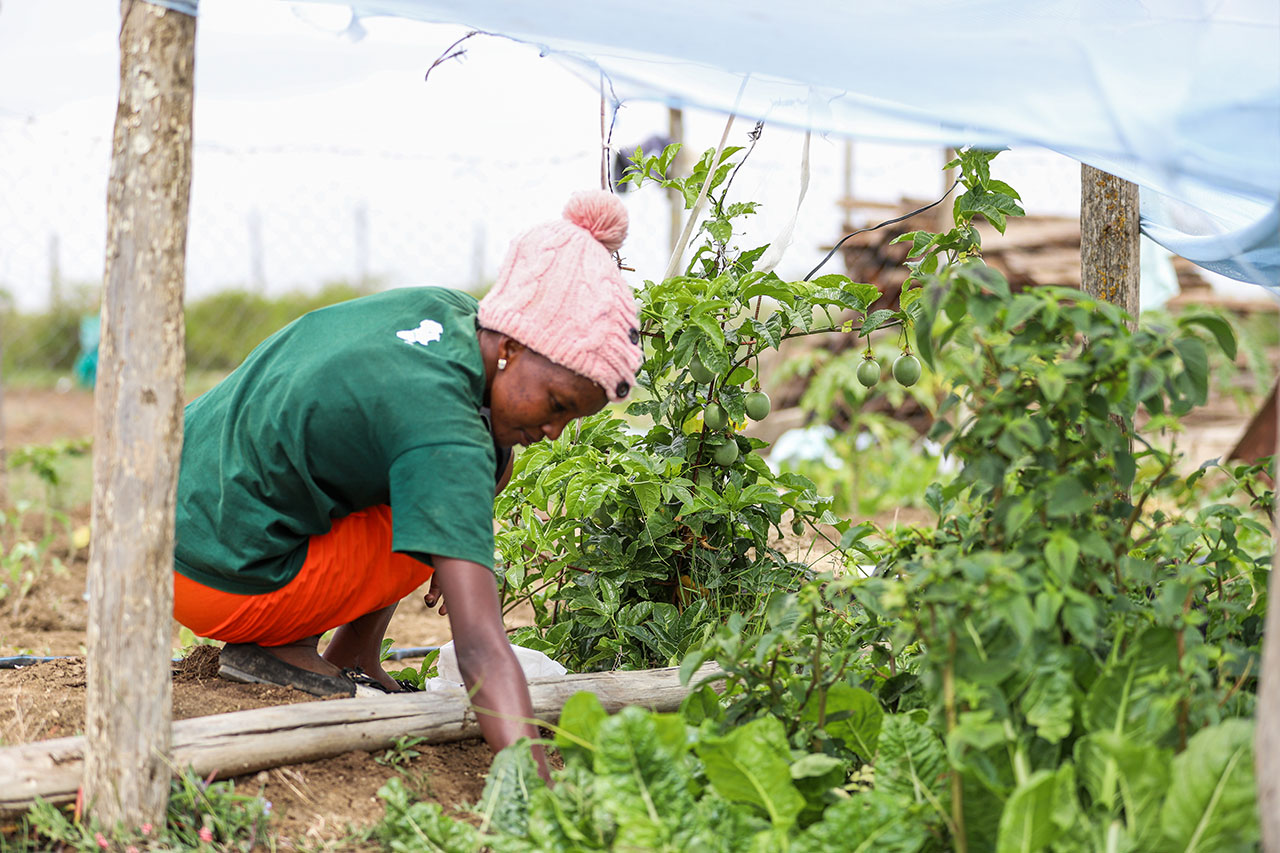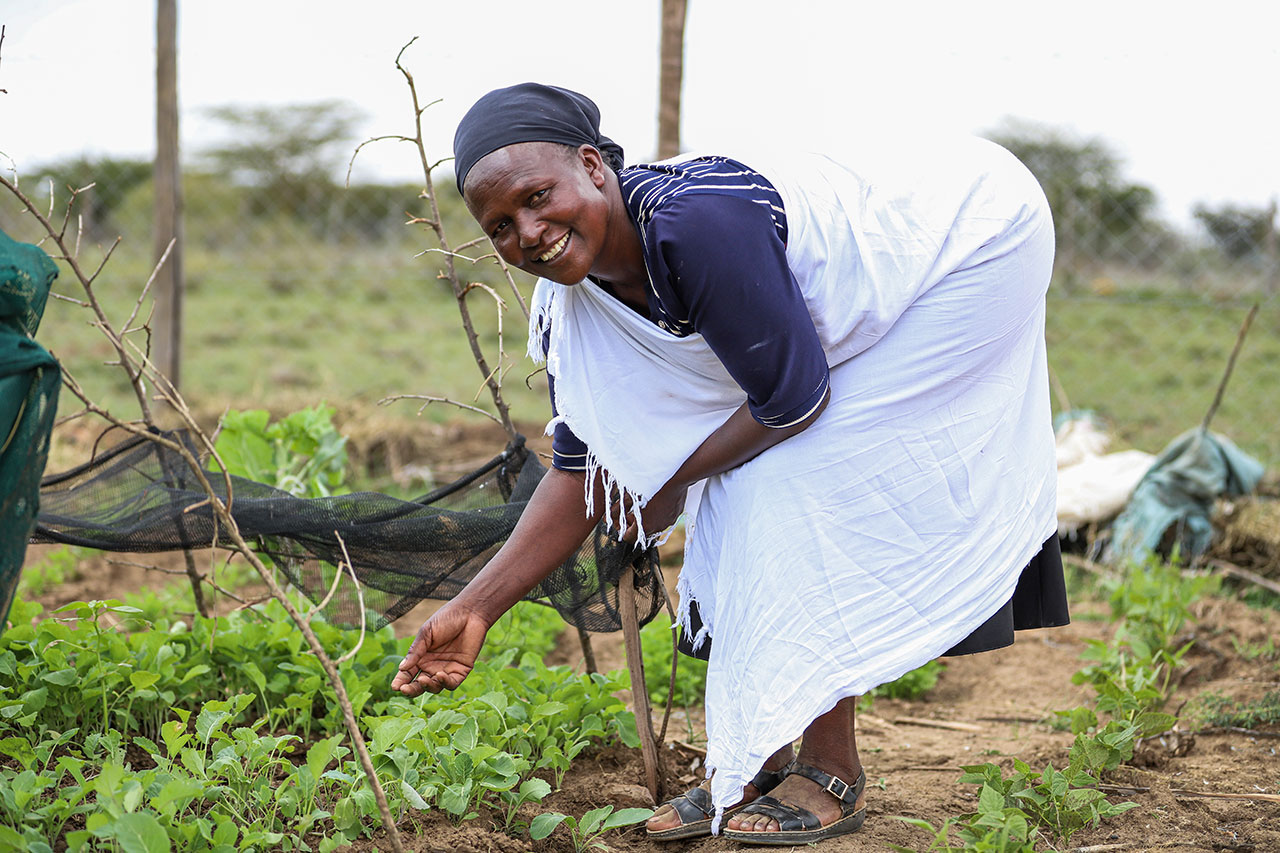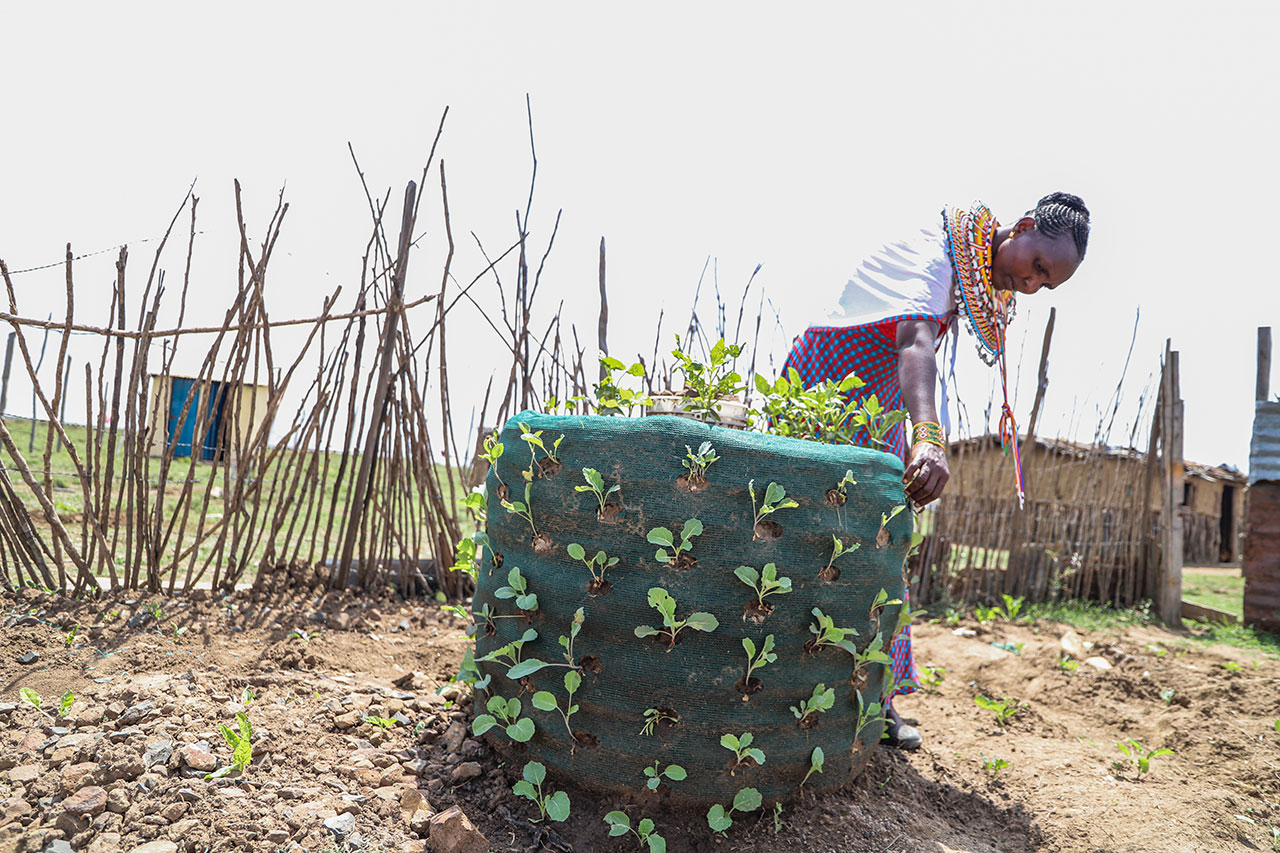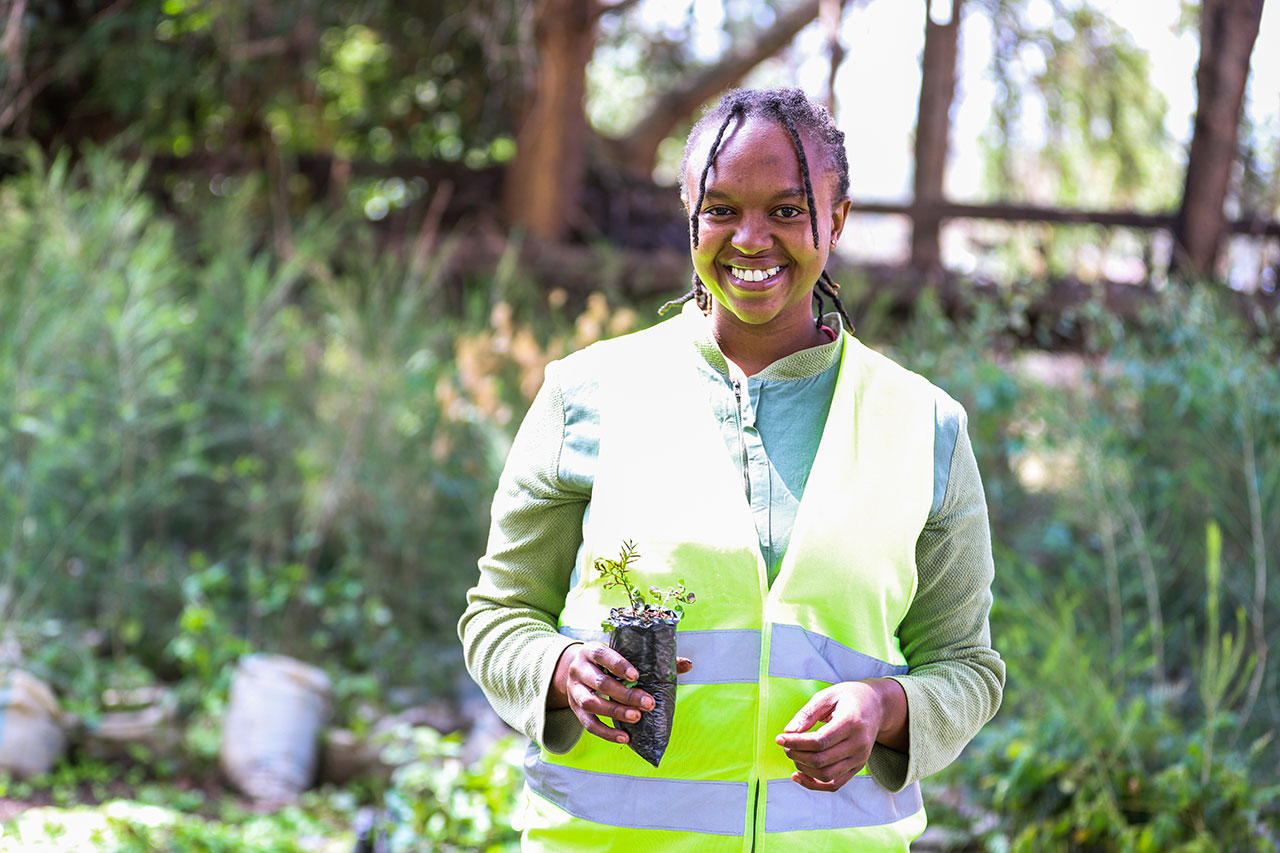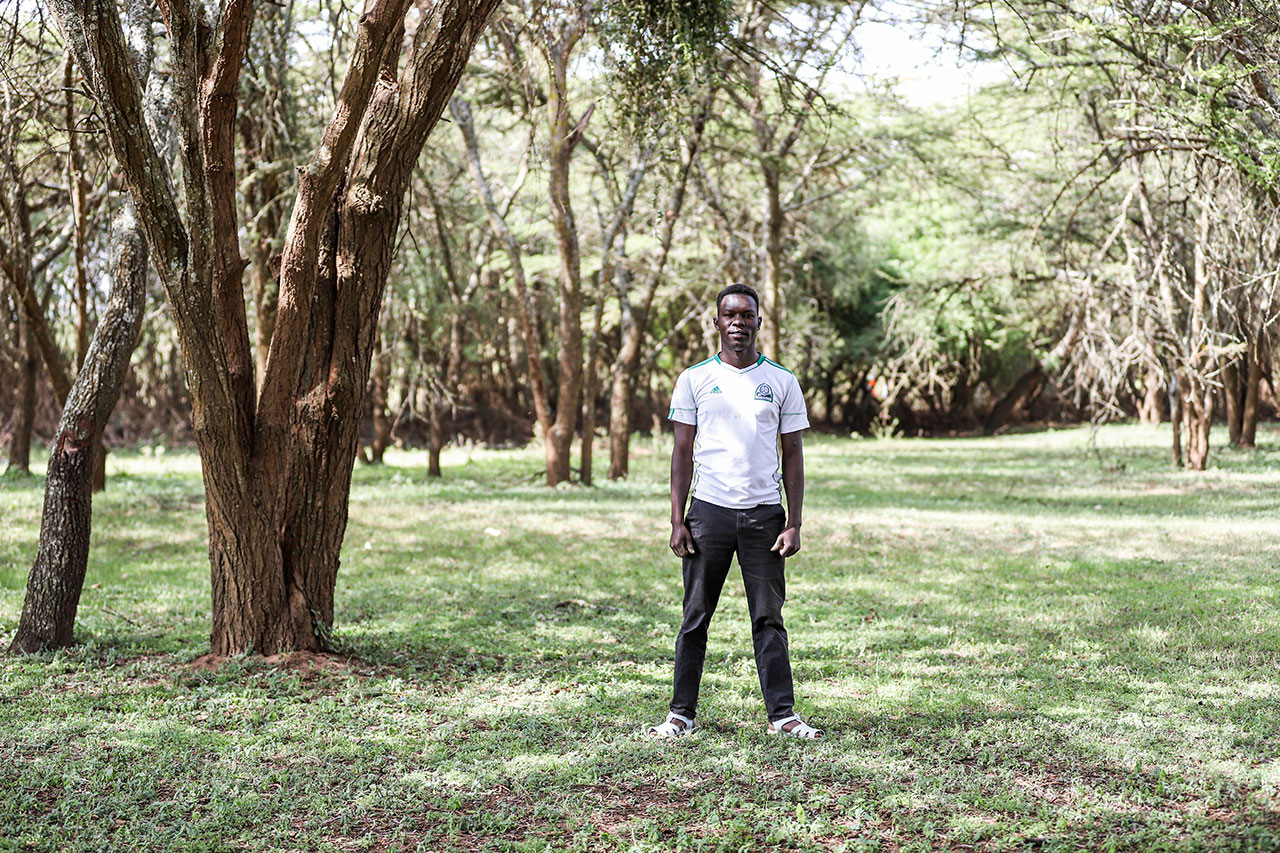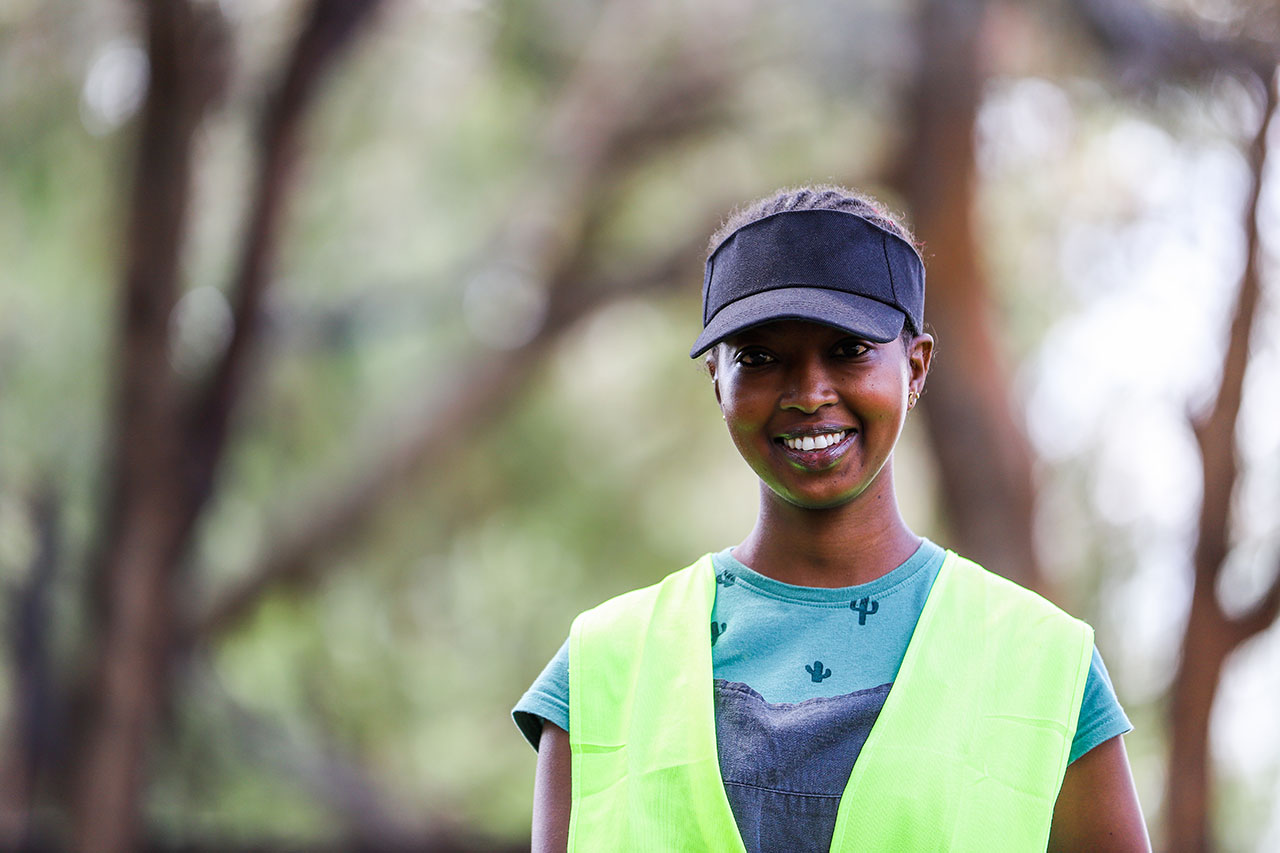Ipas partnered with local group PACIDA to tackle the impacts of climate change on reproductive rights. The solutions—generated by the people most affected—are helping build resilient communities.
Northern Kenya’s arid and semi-arid lands are in the grip of a prolonged drought brought on by climate change that has killed millions of livestock and caused widespread crop failures—a devastating blow to the region’s pastoralist communities, where livestock production is the major livelihood.
In 2022, the organization Pastoralist Community Initiative and Development Assistance (PACIDA) spent time in Samburu County to meet with women and girls, local health officials, youth groups and other community members. The goal was to assess the effect of climate change on the reproductive rights and decisionmaking of women and girls—and to collaborate with them to find ways to build resilience in the face of extreme weather events.
Technical support for this effort came from the Ipas Africa Alliance, with on-the-ground work carried out by PACIDA. Ogambi Gonzaga, senior advisor for community access for the Ipas Africa Alliance, says funding for the project came from the Ipas Collaborative Fund, with “no strings attached.” This allowed PACIDA, local experts in the humanitarian needs of pastoralist communities, to use the money as they felt it was most needed.
“For all our grantees, the support we provide includes building grantees’ capacity for community engagement work, as well as help setting up financial systems and implementing sexual and reproductive health and rights programs,” says Gonzaga.
The images here, photographed by Esther Sweeney for Ipas, give a close-up look at the people and local organizations involved in this project as it was unfolding.
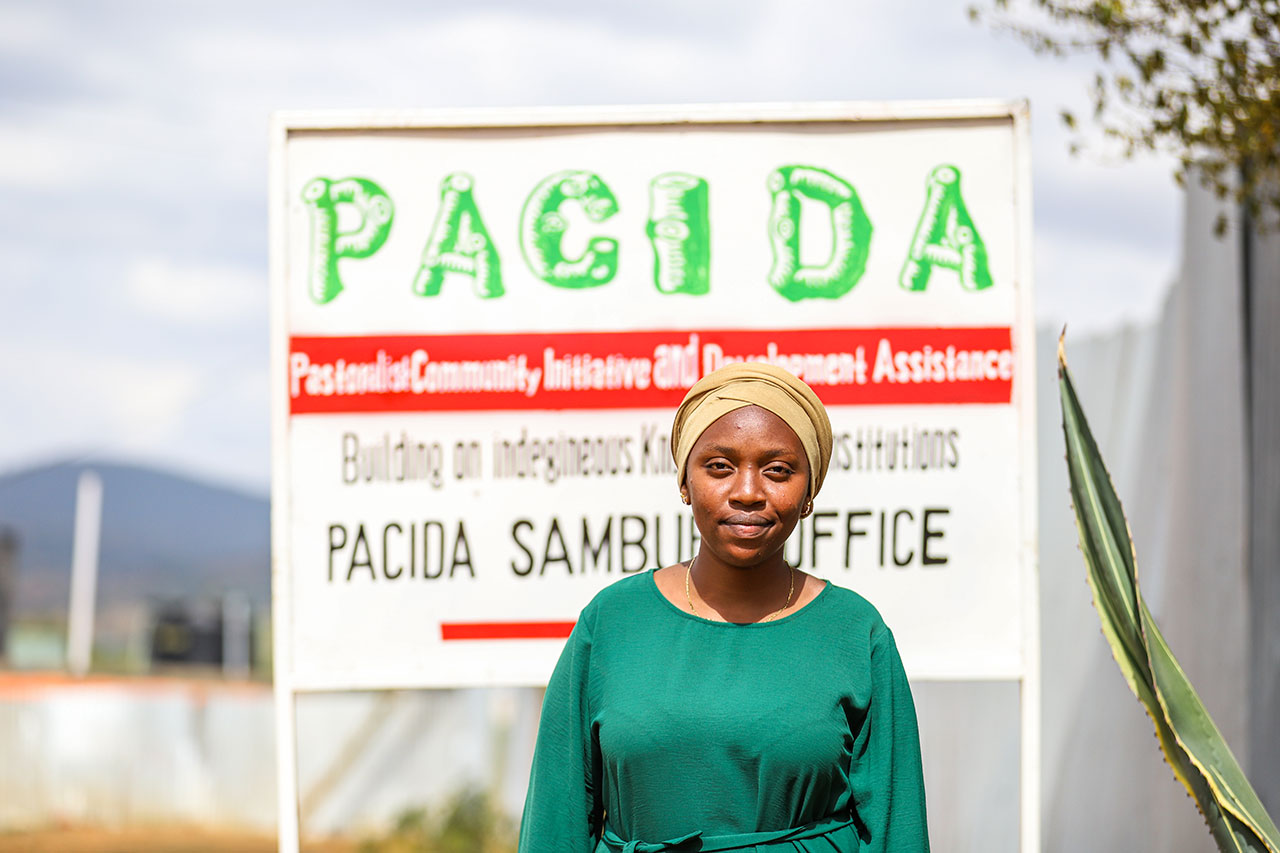
“Most people did not know that there was a link between climate change and sexual reproductive health, and this project has enabled us to educate the community on this link. With the help of Ipas, we have been able to start real change on environmental sustainability. We are looking for more ways to establish more innovative programs to address climate change.”
Abdia Lalaikipia, PACIDA project coordinator
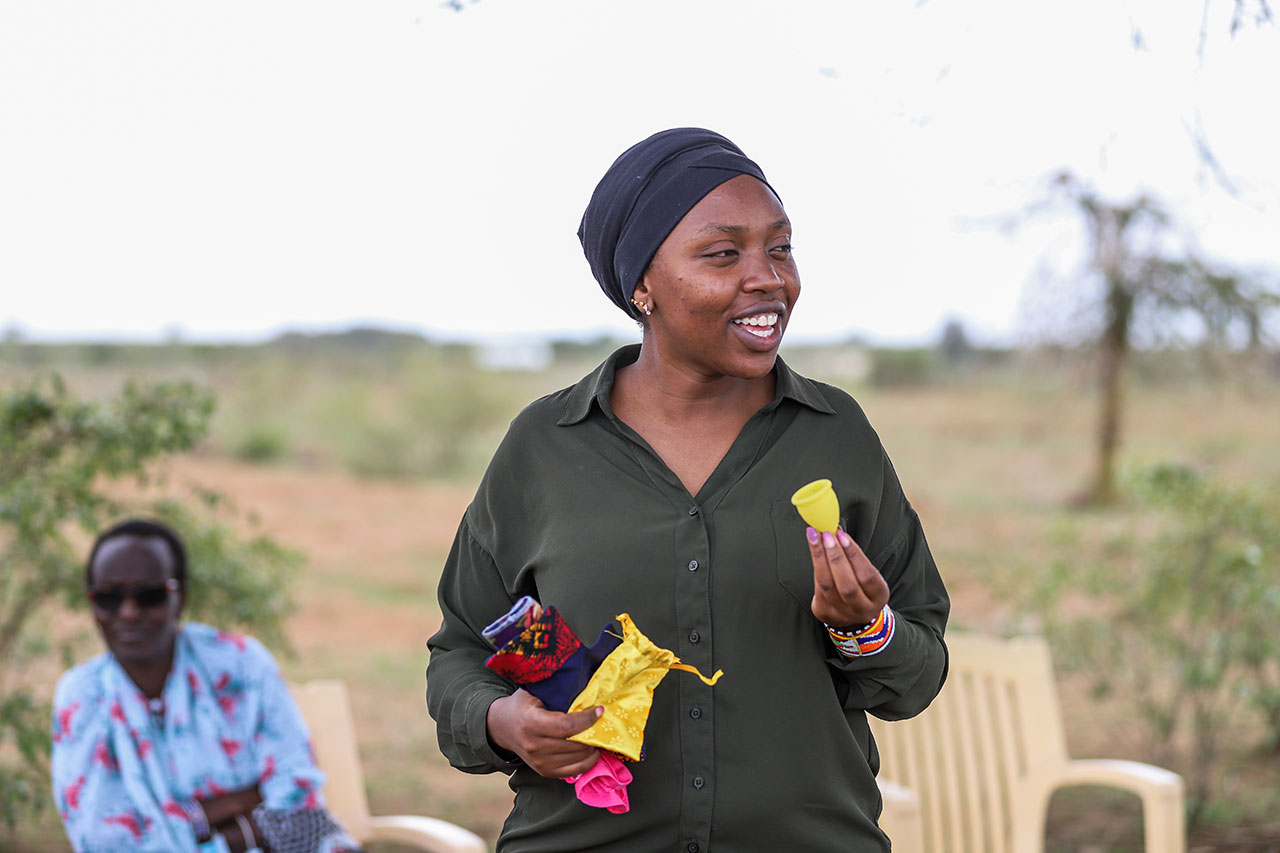
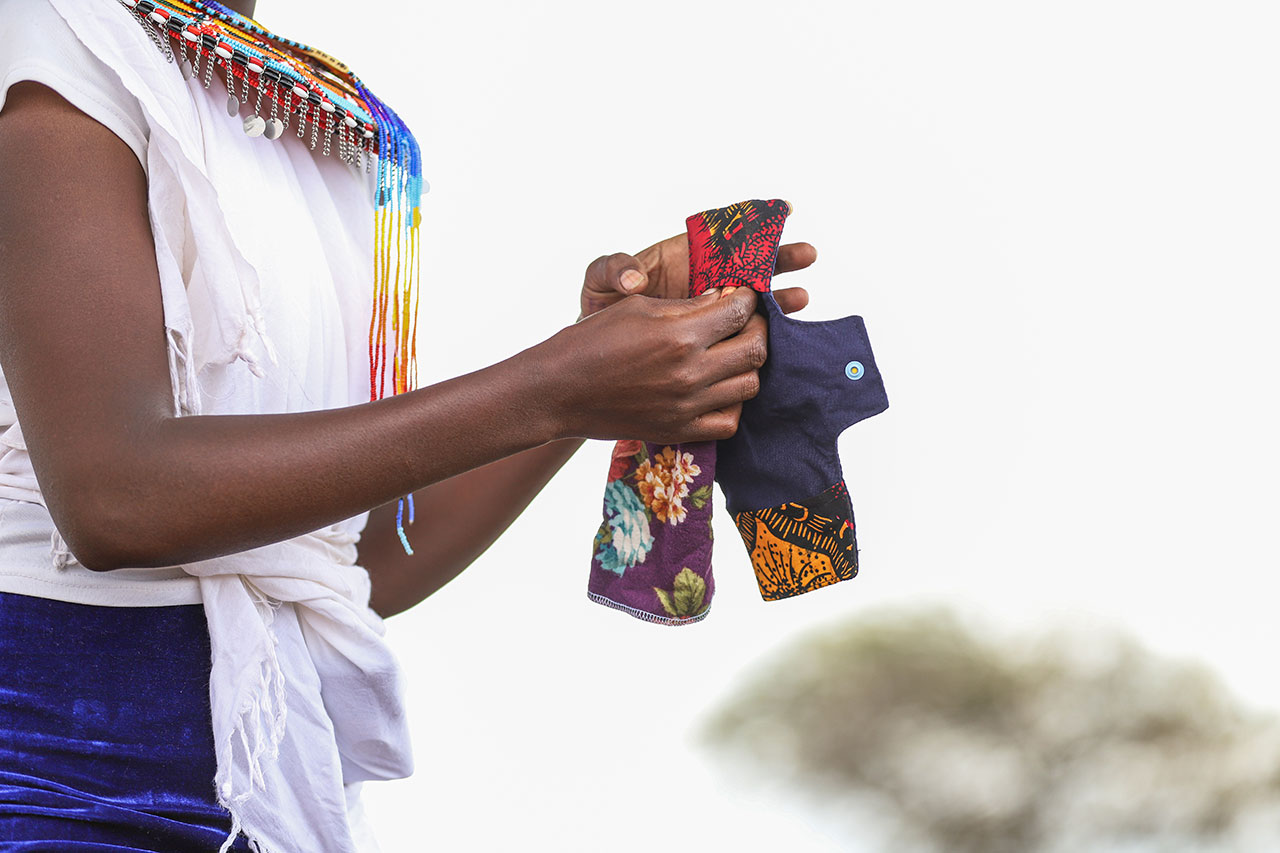
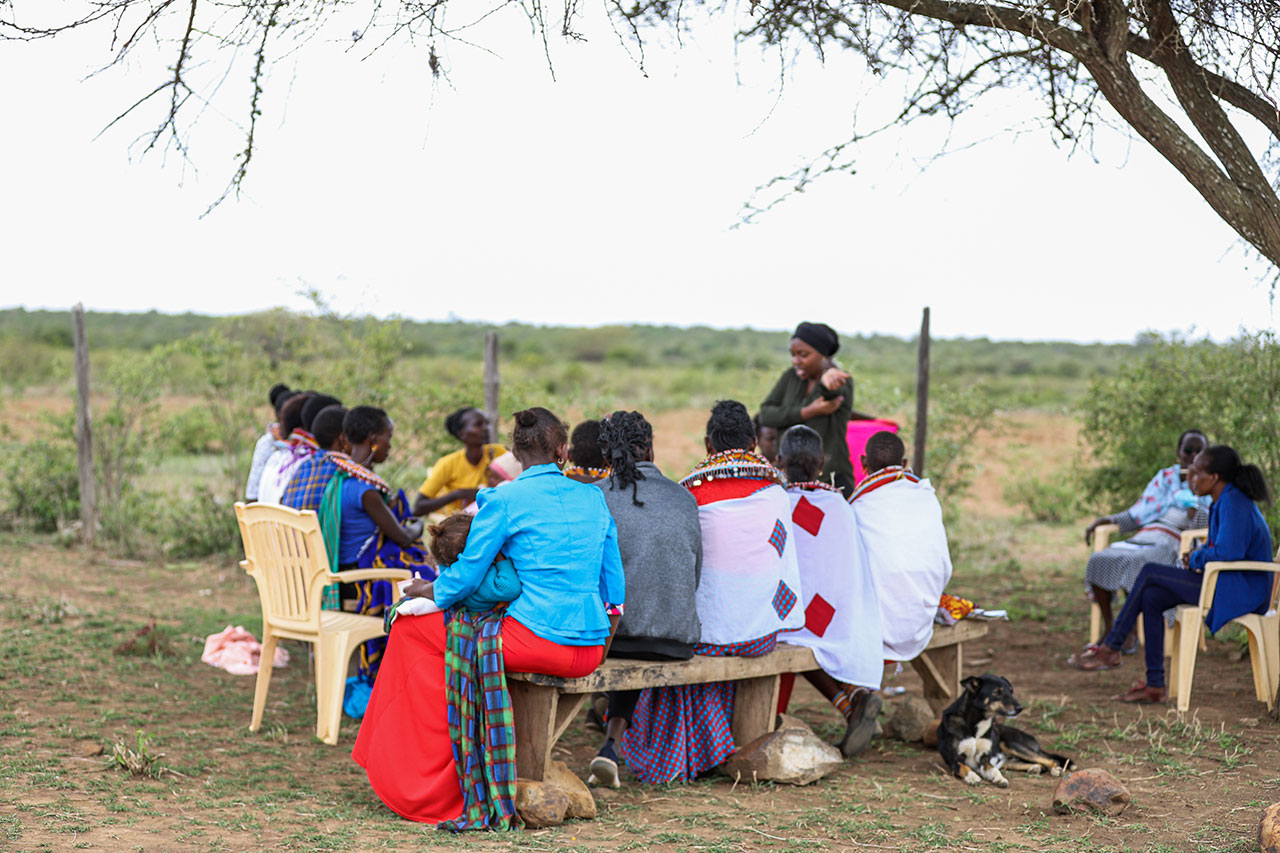
An essential first step: Gathering local perspectives and solutions
Community dialogues with women and girls organized by PACIDA, along with meetings with health officials, revealed the significant impact of drought on sexual and reproductive health. As men have to migrate in search of water and pasture for livestock, women and girls are left to fend for themselves, often walking 10-15 kilometers (6-9 miles) a day to find water and food. To survive, they may resort to exchanging sex for money and menstrual hygiene products like pads.
All of this puts women and girls at greater risk of sexual violence and unintended pregnancies—and makes them less able to access health facilities where they could obtain contraception and safe abortion services.
PACIDA partnered with civil society organizations such as the Environmental Justice Youth Group and Blessings Women’s Group to address these climate-driven issues in practical ways—including providing women and girls information on contraception and menstrual hygiene, training women to plant trees and small “kitchen gardens” to feed their families and generate income, and, in the words of one young woman, “opening our eyes about climate change.”
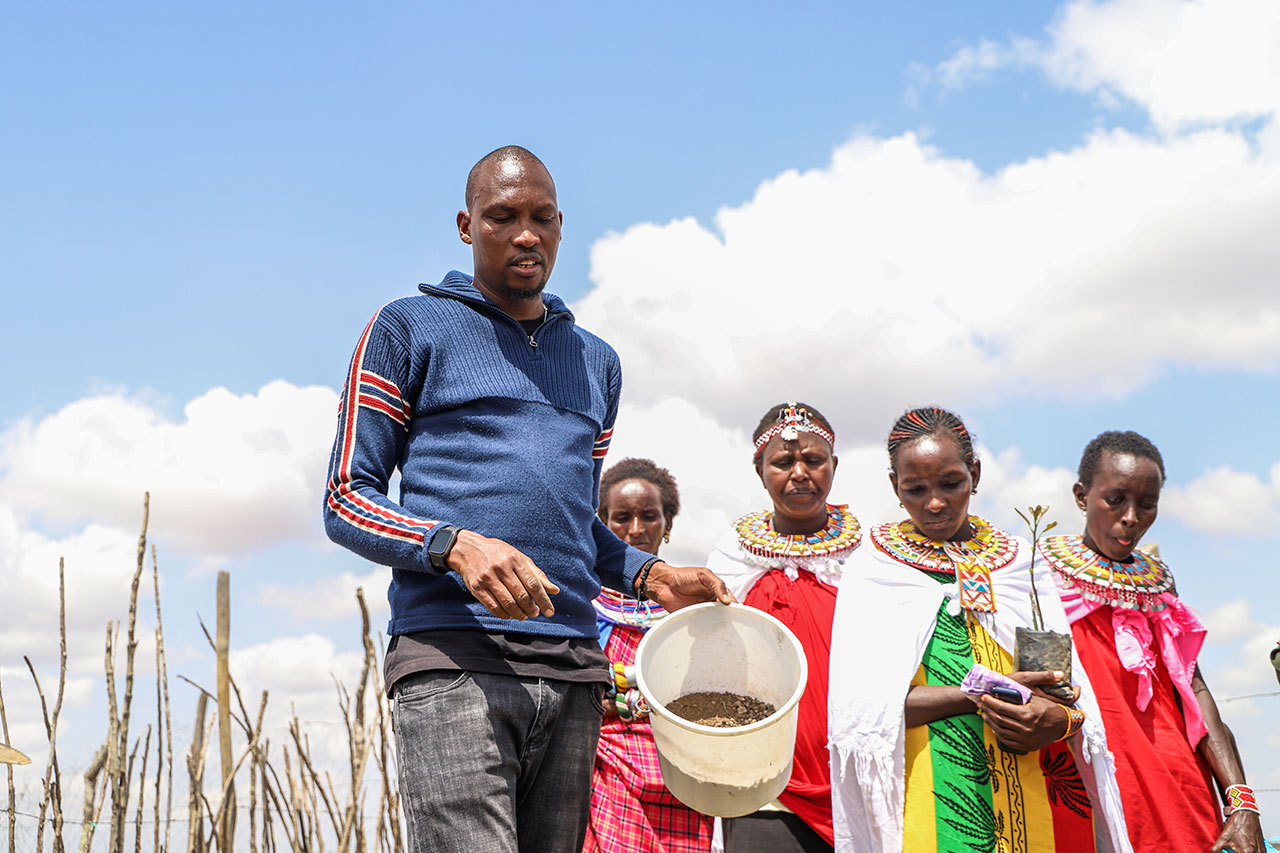
John Jamaica Lediipo, Environmental Officer, Samburu County
John Jamaica Lediipo is an environmental officer for Samburu County who worked in collaboration with PACIDA to educate the members of the community on tree planting, environmental conservation and climate change.
“Climate change is already a menace amongst us,” he says. “It’s hitting hard, and the people who are feeling the pinch are the pastoralists, specifically people living in arid and semi-arid parts of this county.”
“With the help of PACIDA we started a kitchen garden project to grow vegetables to replace milk because cattle are dying due to drought. We also encourage people to grow fruit trees which are high-value trees, and advise them to grow forestry trees for livestock feed and shade. Through this work, PACIDA is helping bring positive change in this community.”
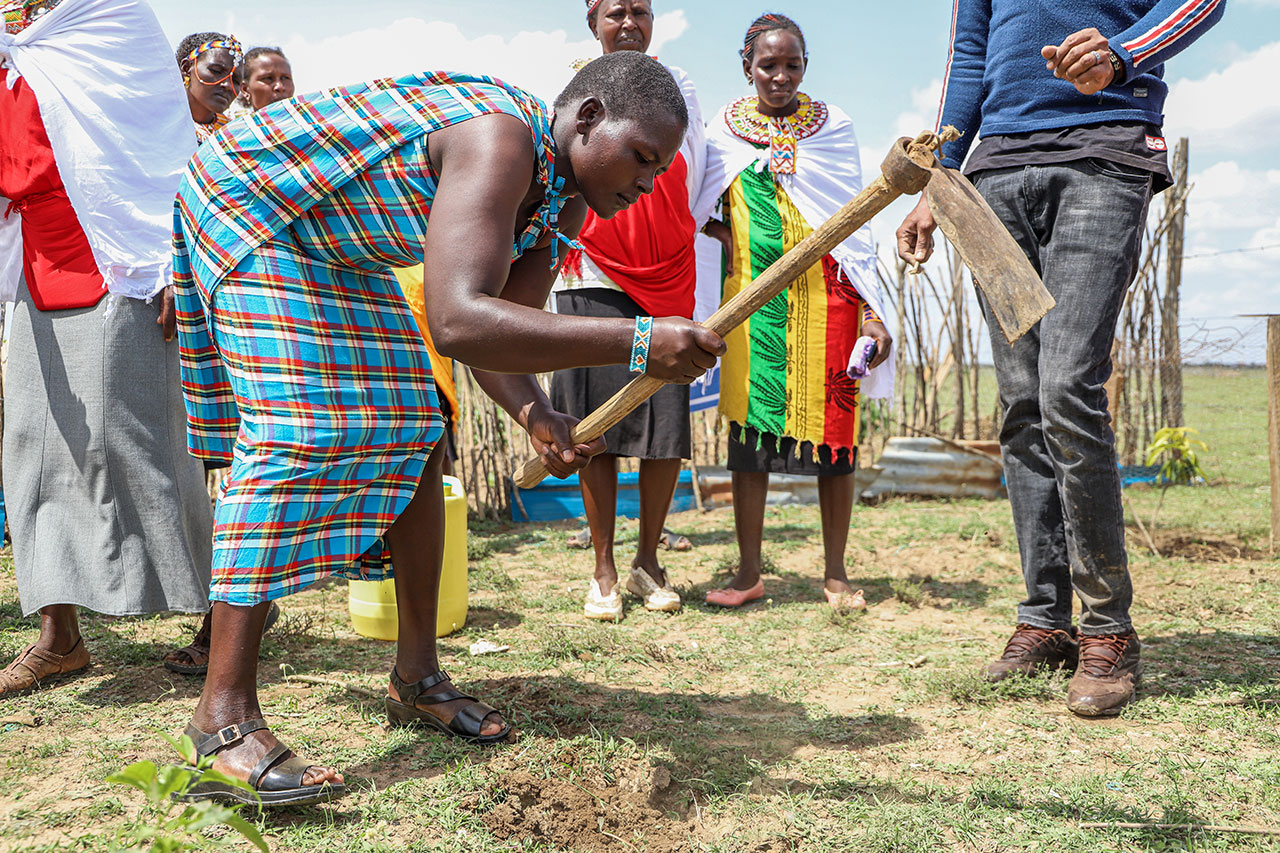
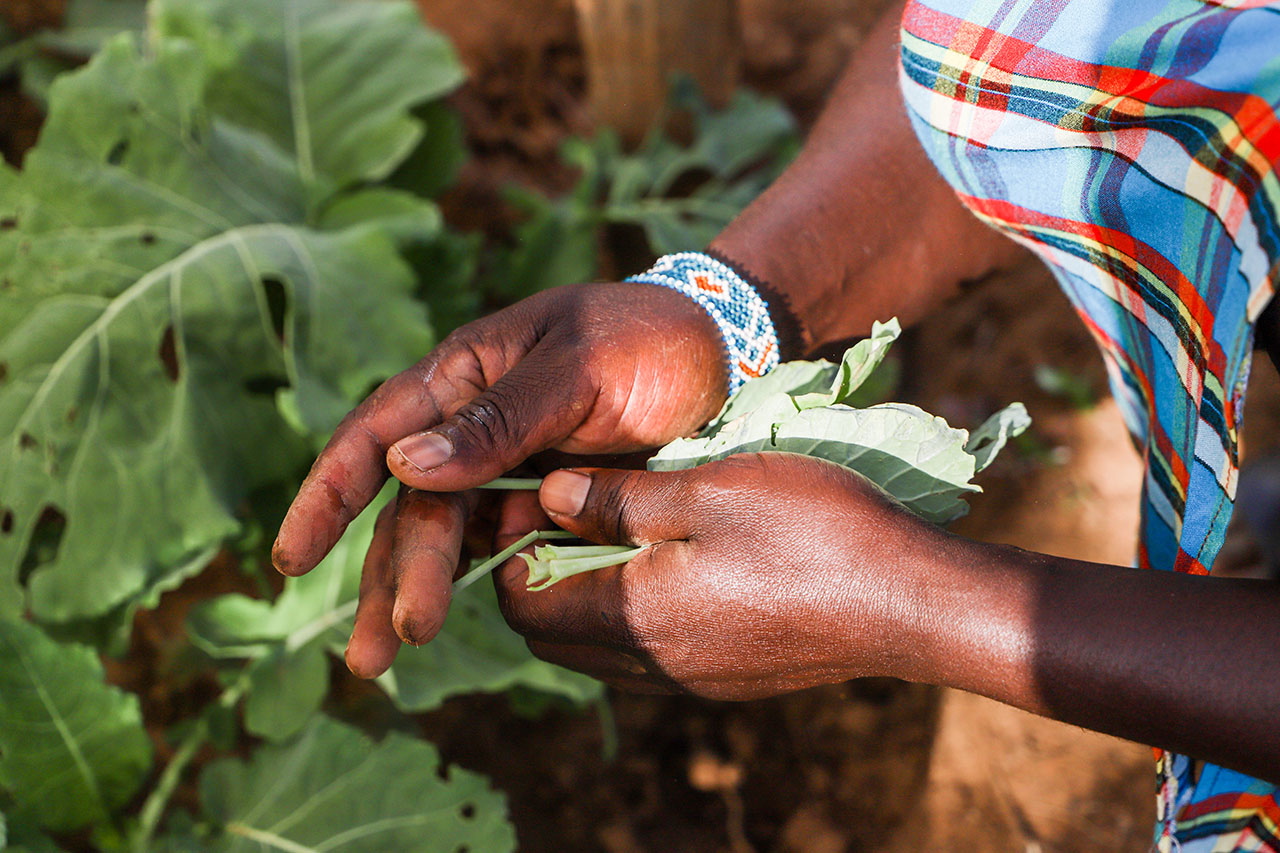
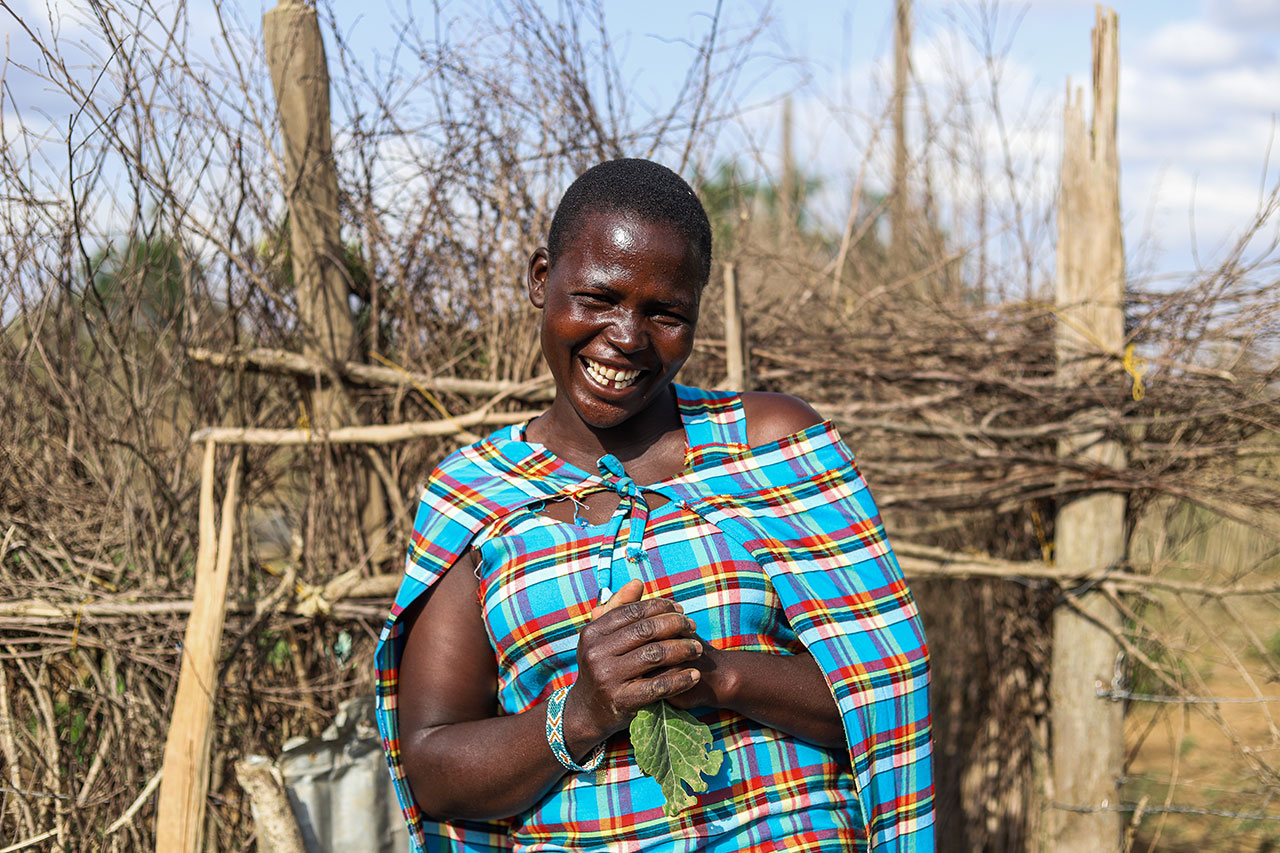
Julietta Lekinasia, Blessing Women’s Group
Through the initiative with PACIDA, Julietta Lekinasia was able to travel to Makueni County to see how women there are farming.
“I was very inspired by the women in Makueni County, especially because we have the same environment. They have succeeded in farming and planting trees and I want that to be the case for our community as well.”
How resilient are local health systems, communities and individuals?
In the meantime, an Ipas research project is also under way to investigate the resilience of local health systems, communities and individuals in response to this climate crisis in arid and semi-arid communities. Resilience is defined as “the capability to anticipate, prepare for, respond to and recover from” extreme climate events.
The research is a joint project of the Ipas Africa Alliance, PACIDA and the Samburu County government. It will explore the impact of climate change on the sexual and reproductive health and rights of women and girls who live in arid and semi-arid communities in Samburu County and will examine the capacity of the local health system to provide sexual and reproductive health services during acute climate stressors, such as drought and flooding.
Researchers began data collection in the spring of 2023. The project will identify ways to integrate reproductive health, gender and climate-related initiatives into sexual and reproductive health services in the county.
“Our hope,” says Sally Dijkerman, an Ipas senior research scientist who is co-leading the research project, “is the possibility of a new Samburu County climate change policy that integrates gender and reproductive justice.”
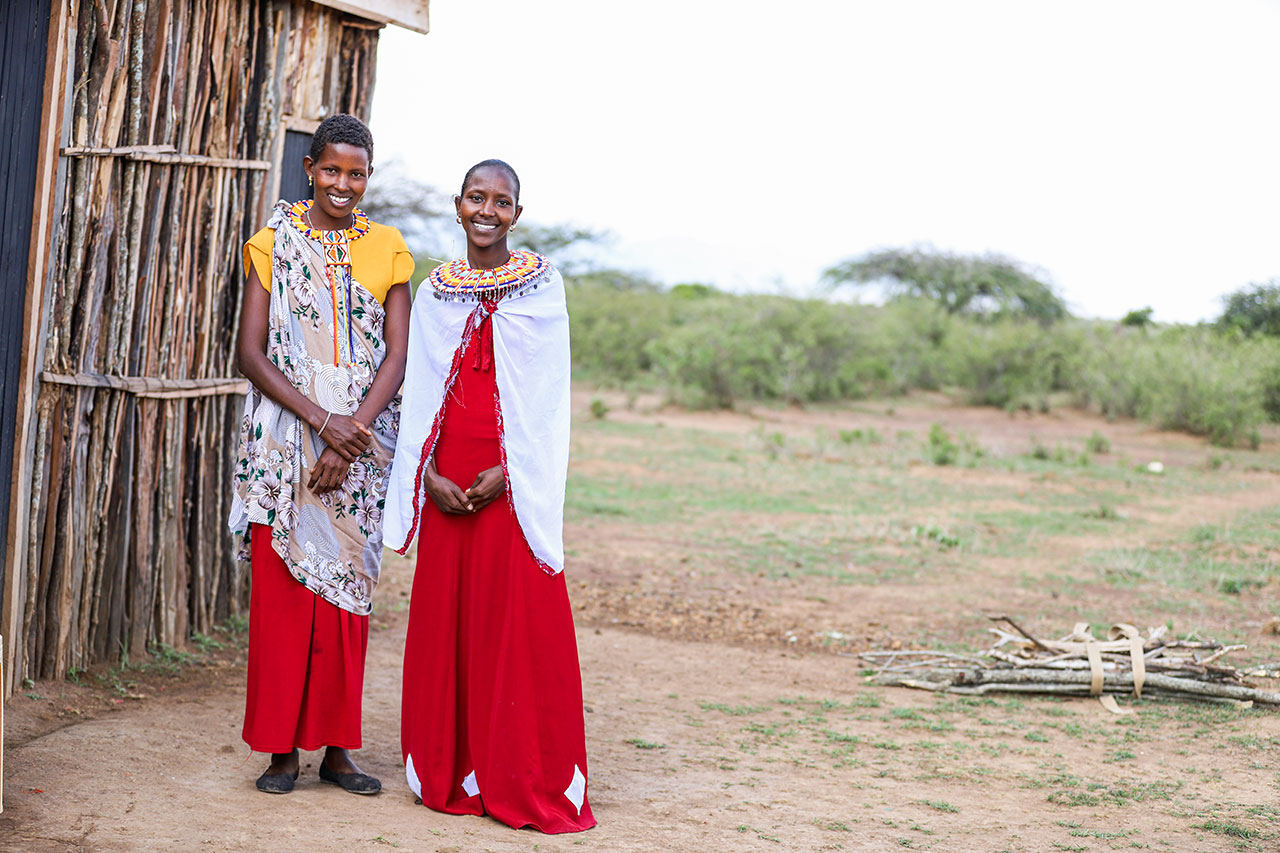
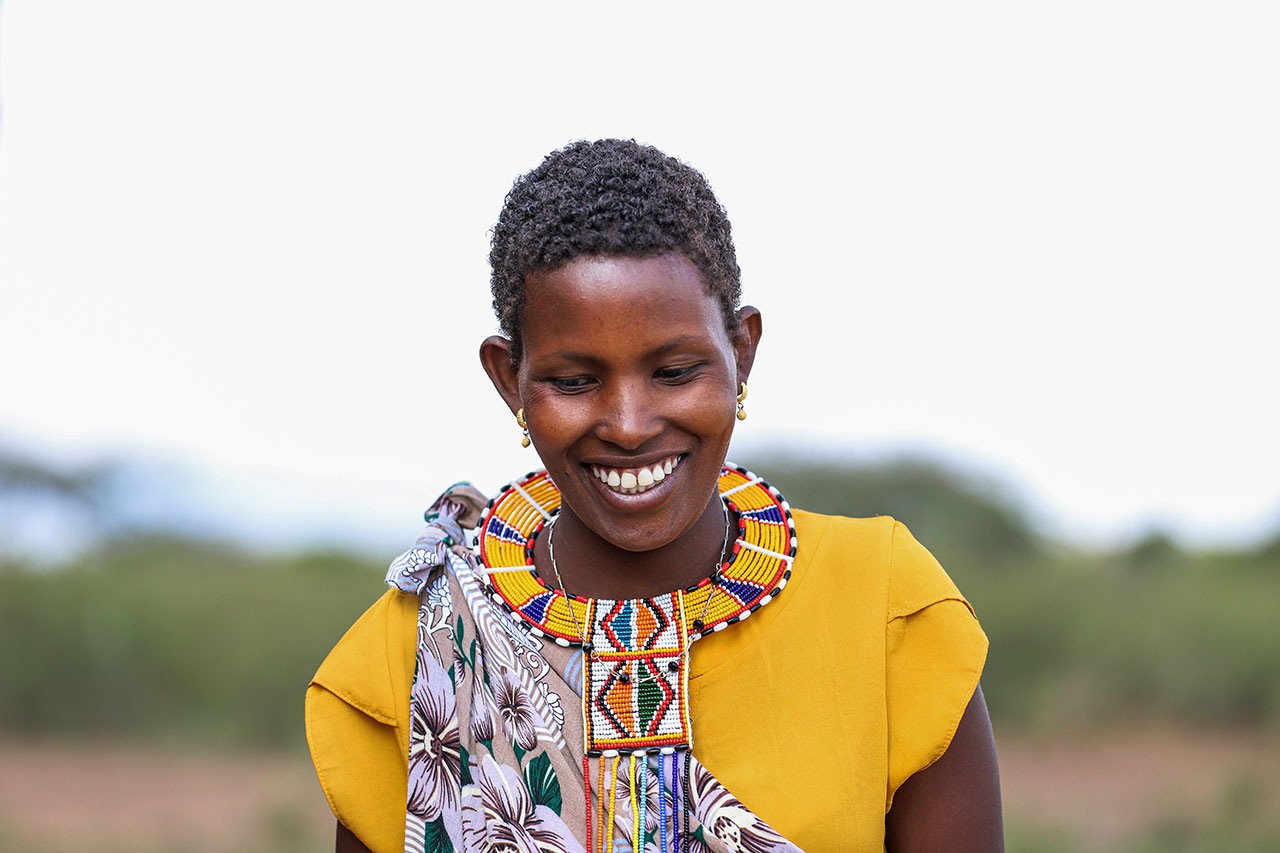
“Through PACIDA I have been taught about family planning, kitchen gardens and climate change. I also have been educated on the benefits of taking my child to the clinic. Before we could not afford sanitary pads but through PACIDA we get the washable ones, and we are also taught about hygiene and disposal of pads.”
Margaret Leparkry of Namaiyana Youth Group
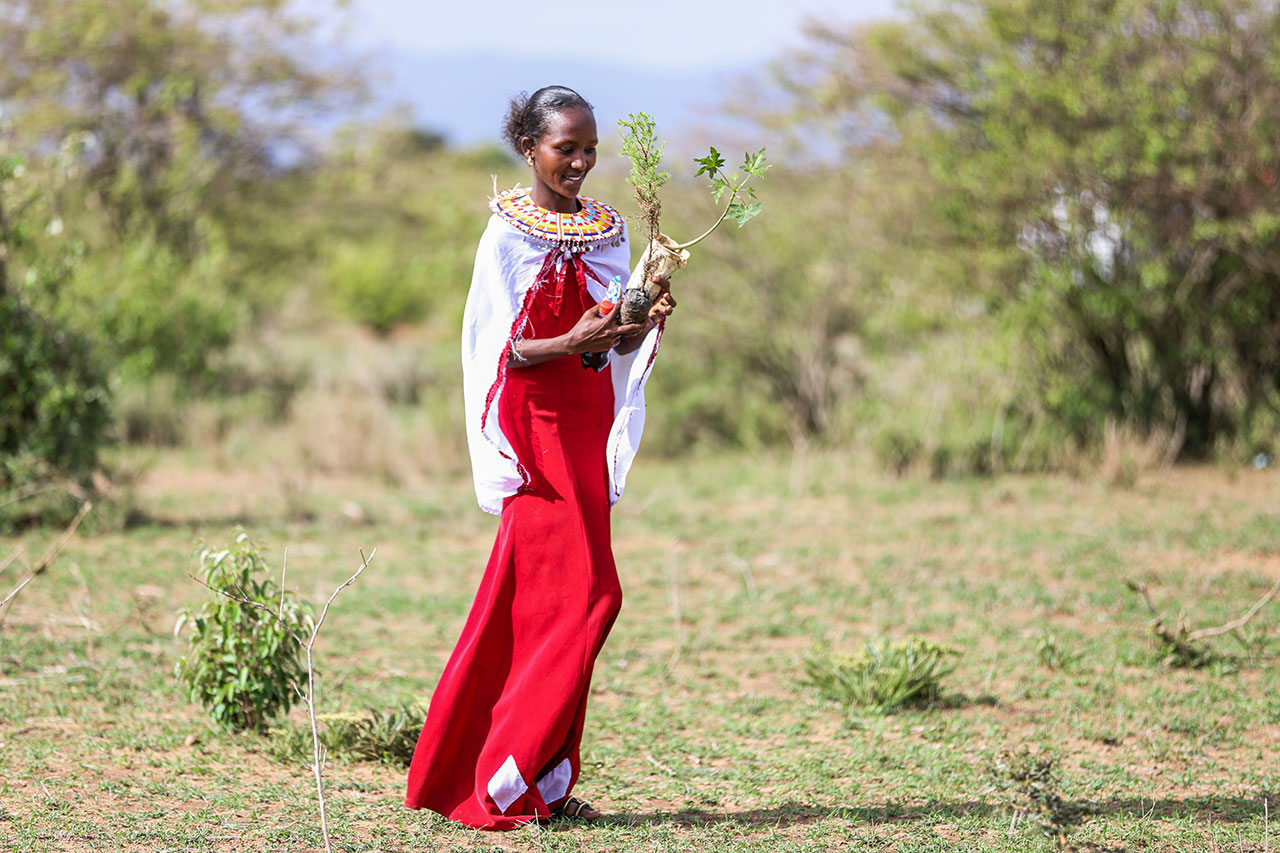
“I have also learnt about climate change and the importance of planting trees. I have learnt about the importance of not wasting water, and now the water I use at home I recycle and use for my kitchen garden instead of pouring it out and wasting it.”
Christine Lekamario of Namaiyana Youth Group
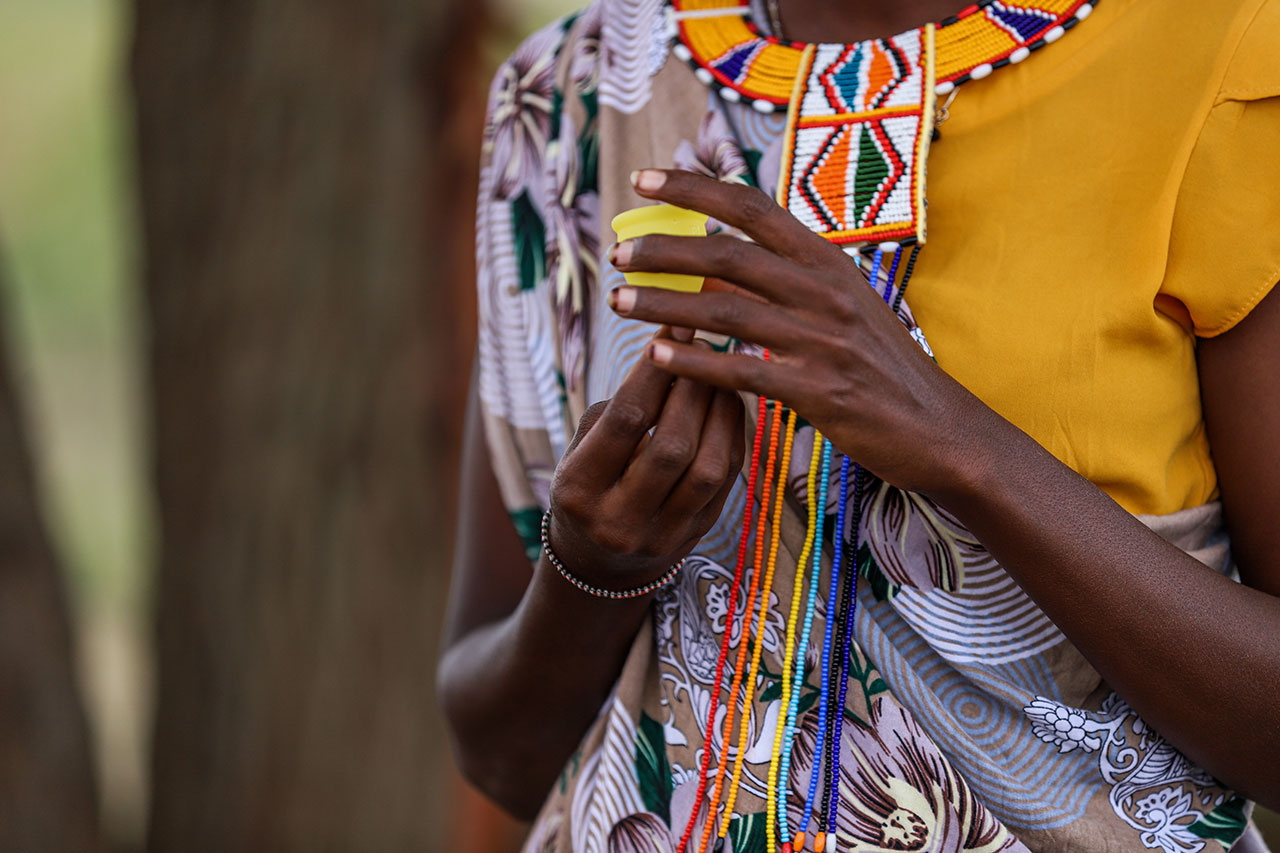
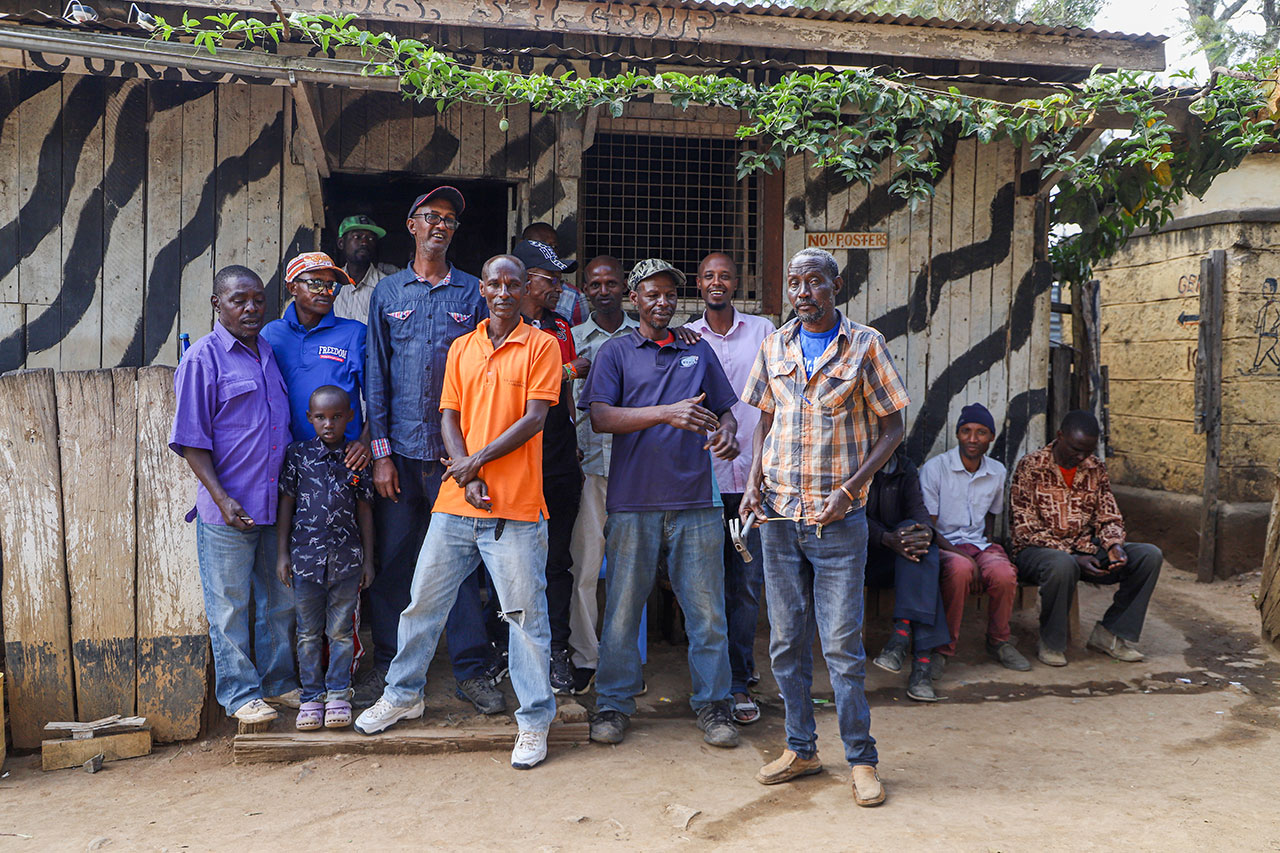
The Plastic Boys
Shown below are Ismael Ali and Mureithi, who are members of Plastic Boys, a group formed to combat the use of plastic. The Plastic Boys started a small farming project behind their workshop, where they plant trees and house plants. The project has been successful and through PACIDA the Plastic Boys have been given a bigger farming space near the county government offices.
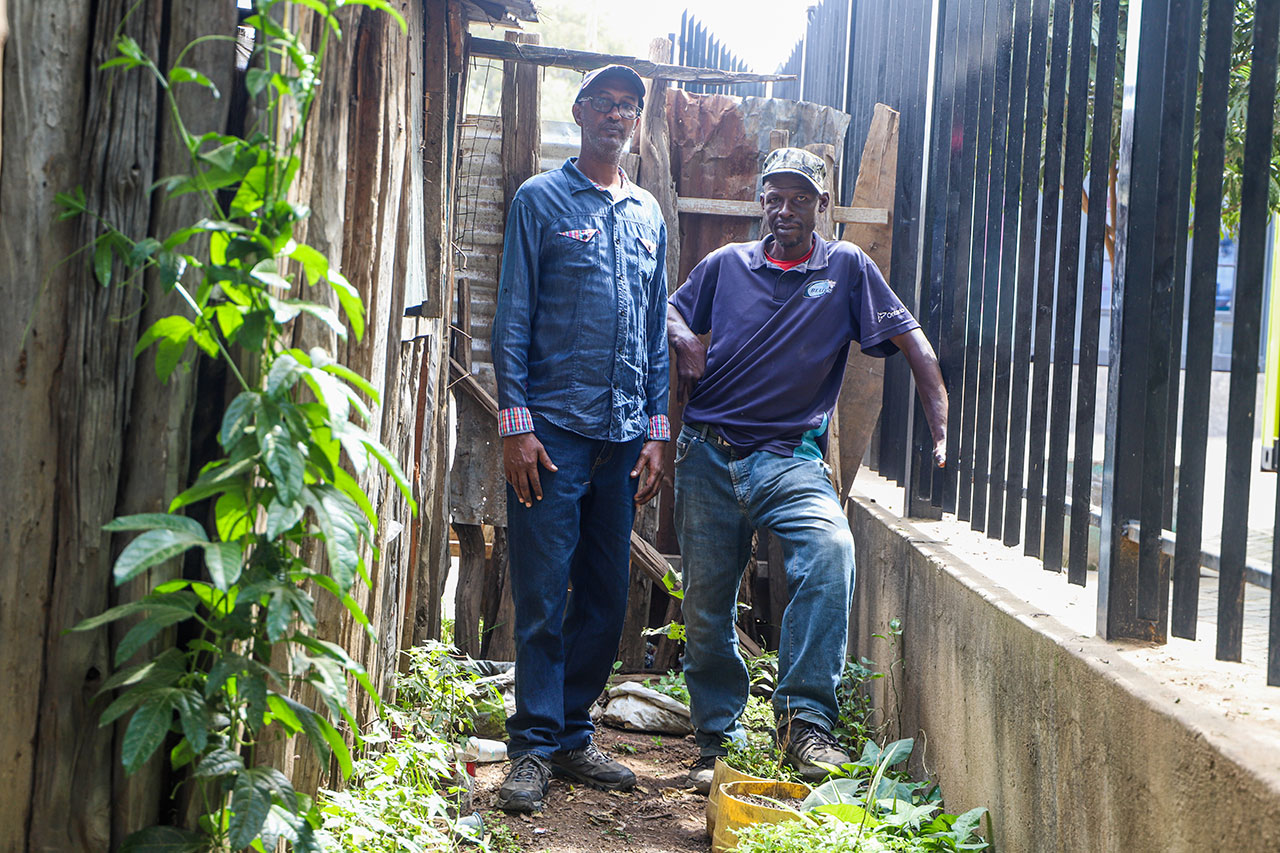
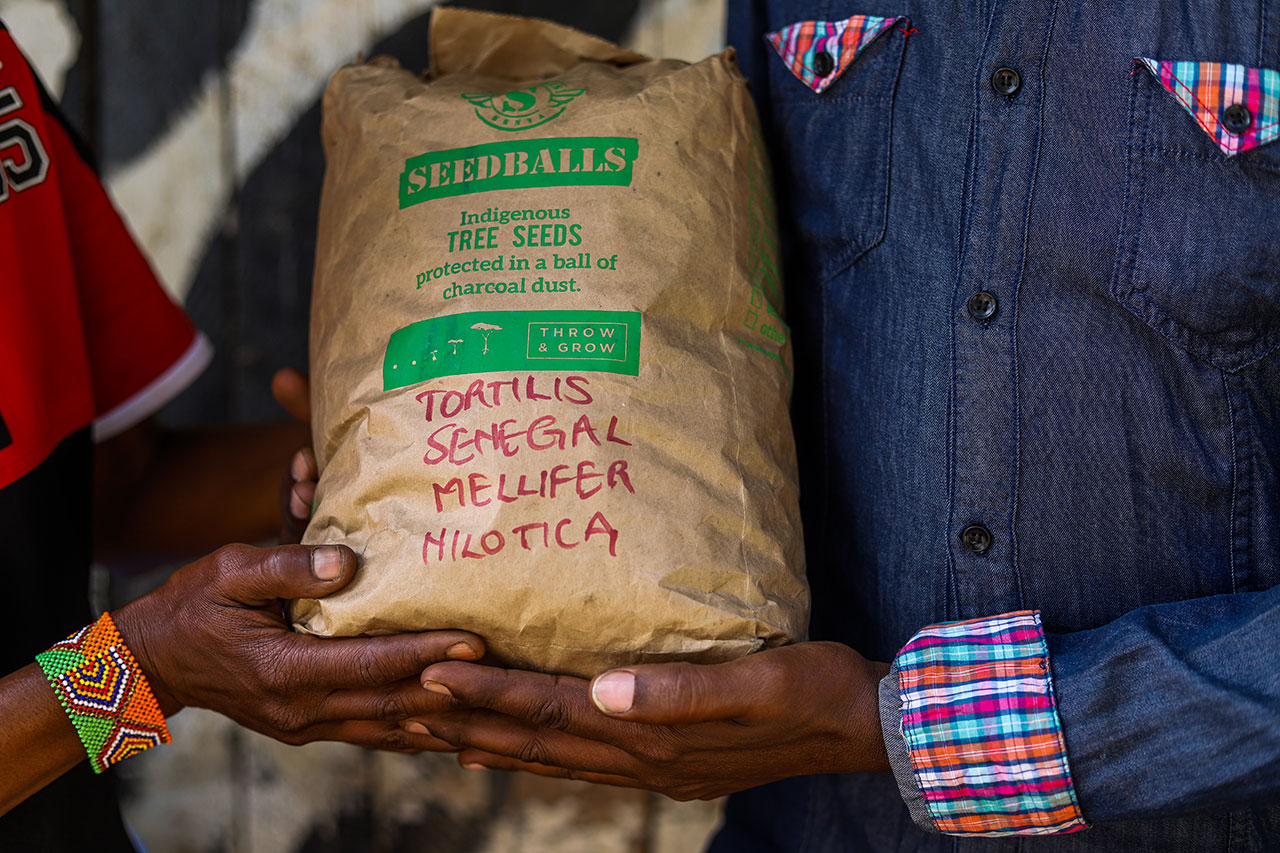
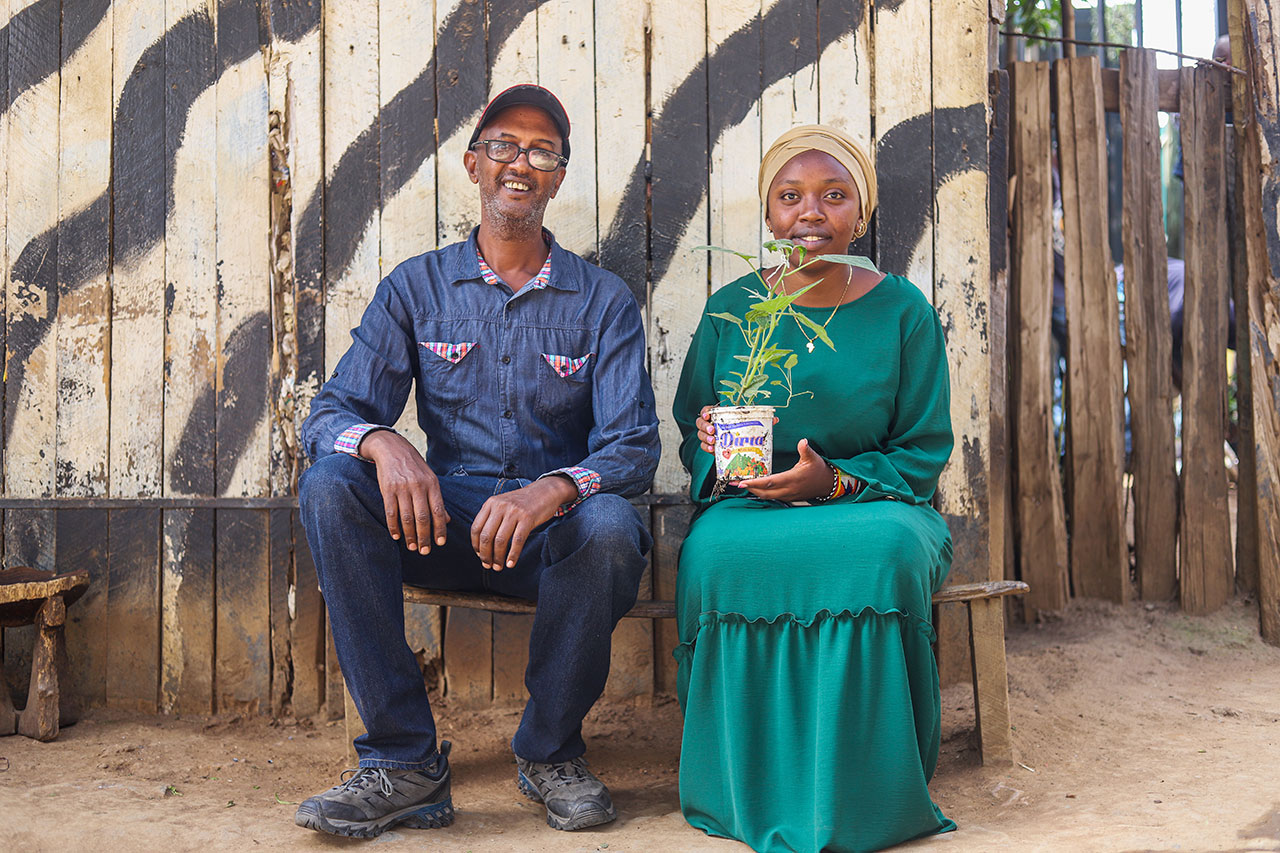
Momentum is building: We need women-led climate justice
All of this comes as African leaders gathered in Nairobi in September 2023 for the first-ever Africa Climate Summit. In conjunction with the summit, the Africa Women and Gender Constituency was launched to ensure that women’s voices and perspectives are included in discussions and actions taken in response to climate change.
“Women and girls are most impacted by climate change because they so often lack power—and climate crises exacerbate that,” says Anu Kumar, Ipas President and CEO. “At Ipas, we’re working hard to change that. Our work to promote women-led climate justice and reproductive justice is expanding, because we know both are central to global development and stability.”
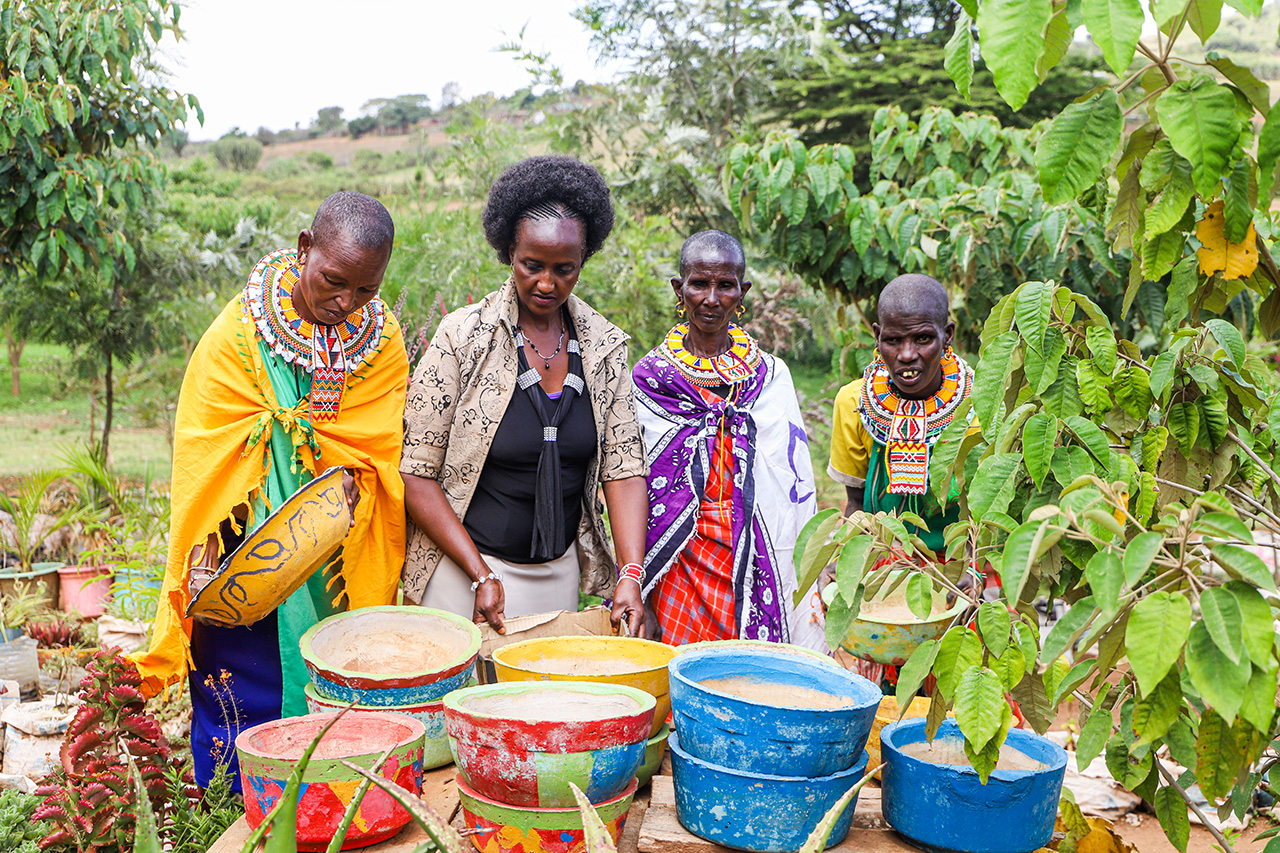
Lillian Letiwa, founder of Ngari Green Nursery/tree project
Lillian Letiwa (second from left) is the founder of Ngari Green Nursery/tree project, which aims to show the effects of climate change and possible ways to adapt to it.
“I started this project because I am passionate about the environment. I approached the area chief and asked for land to plant trees. With assistance from other women, we bought a fence for the land and we would go to the forest to take seeds to plant. From the trees that we sell, the women use the money for school fees and to buy beads.”
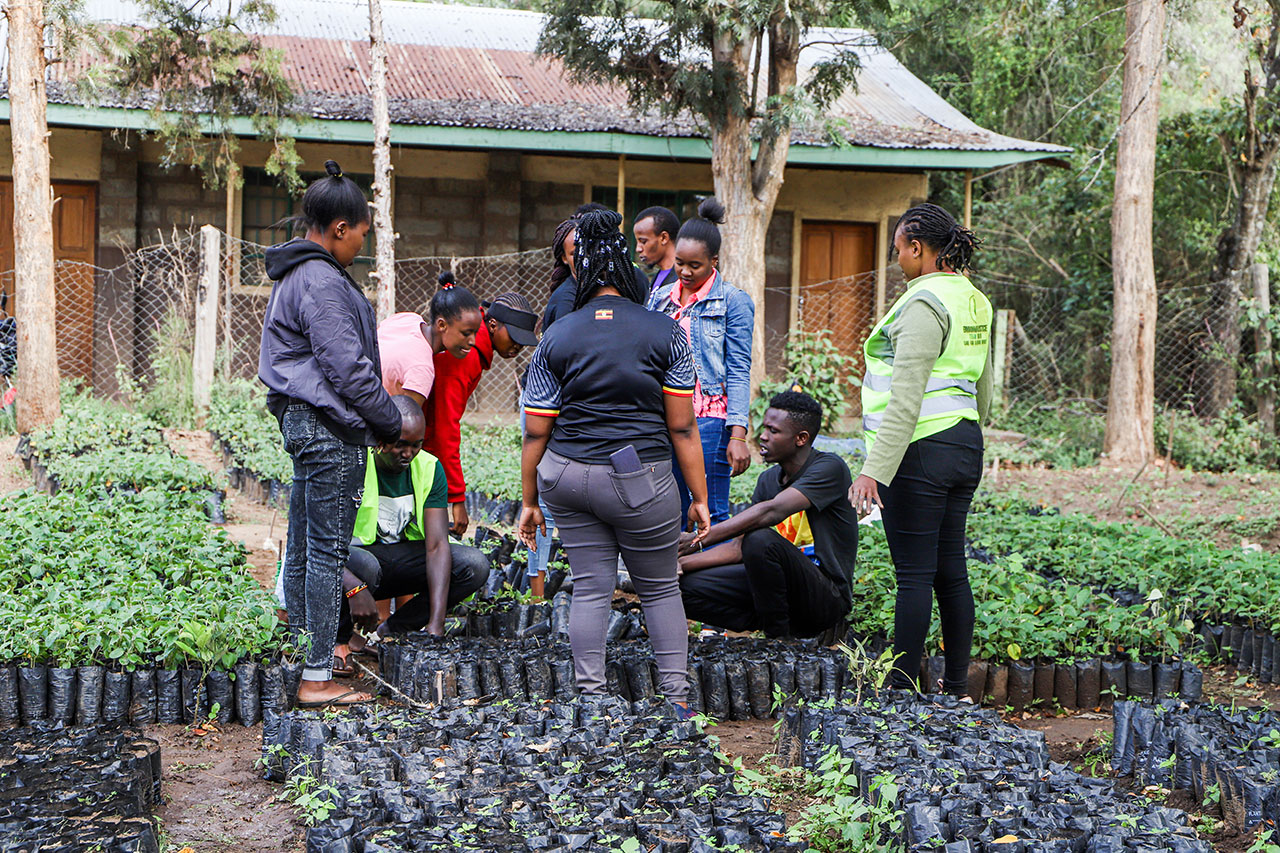
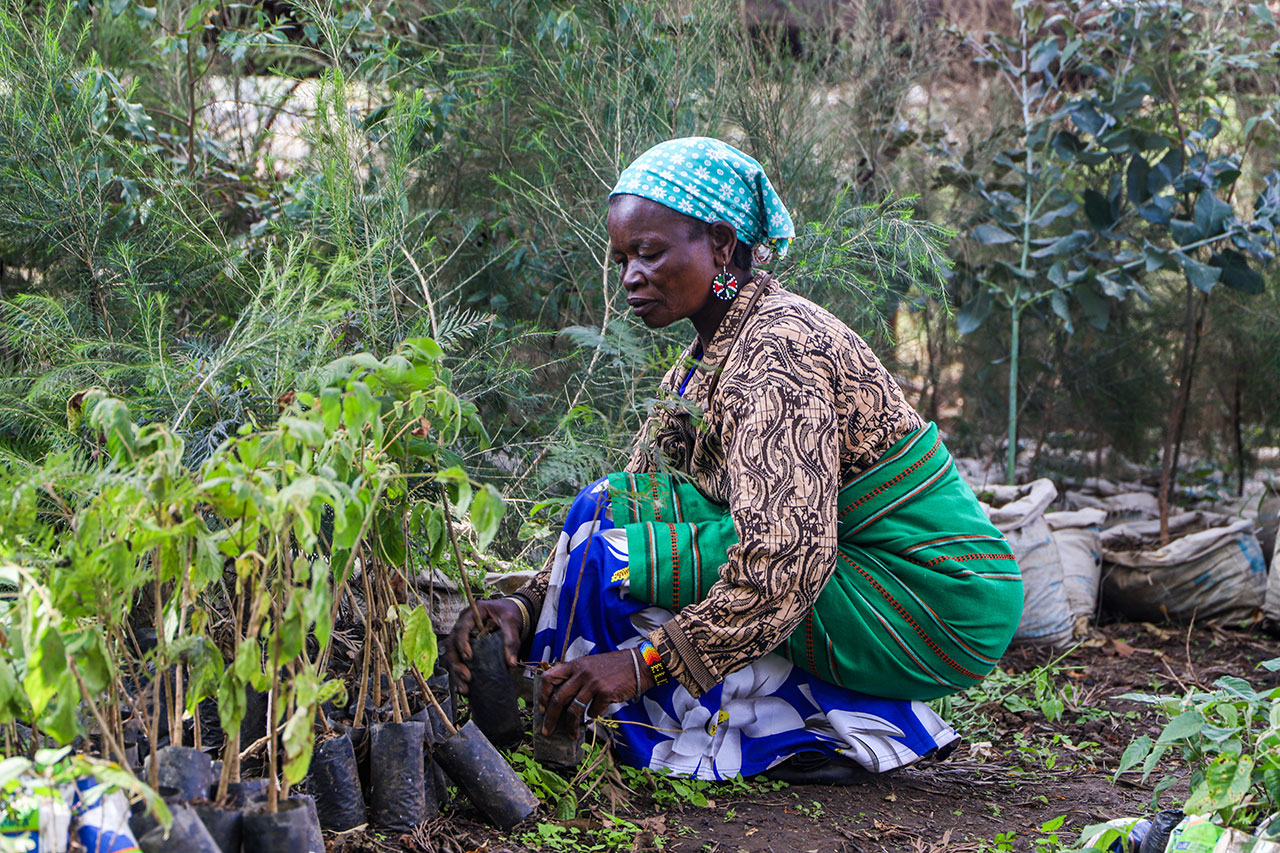
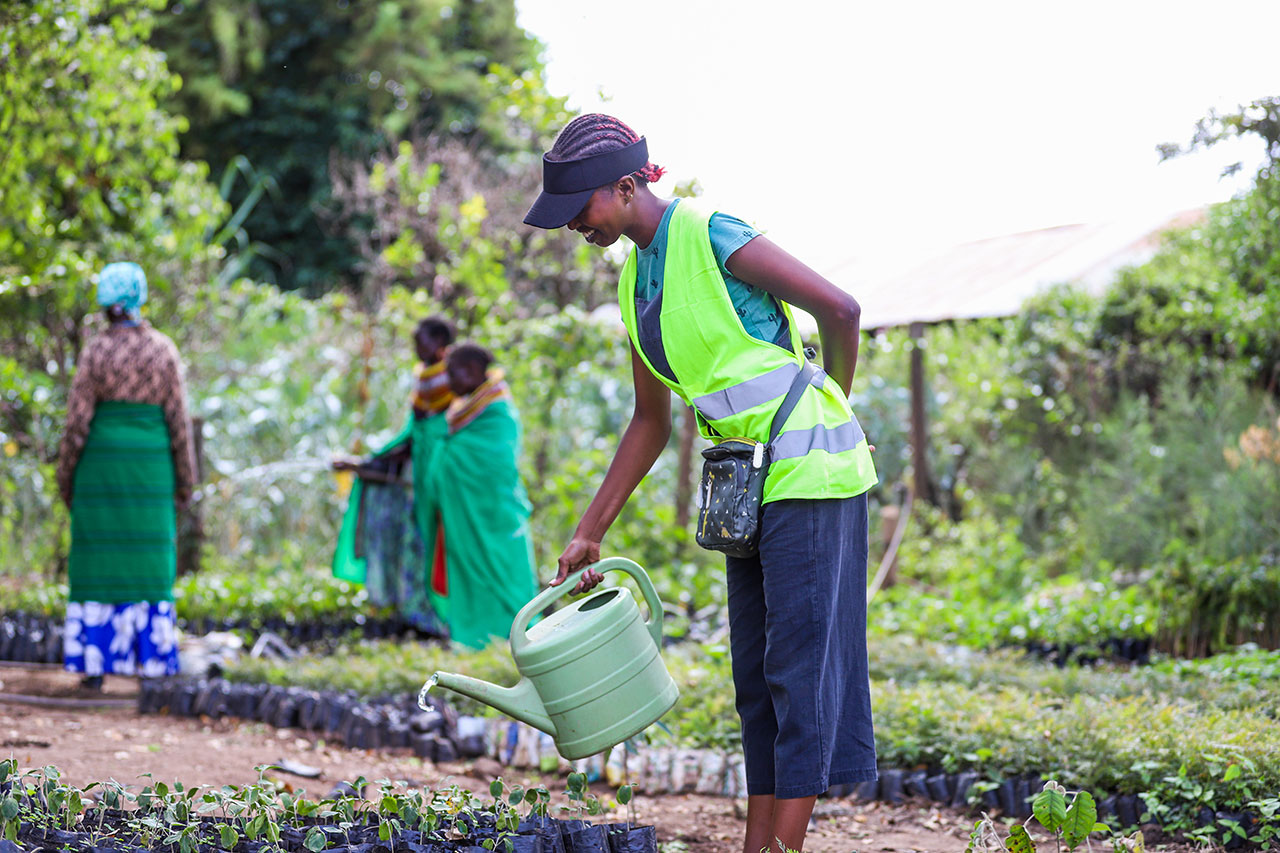
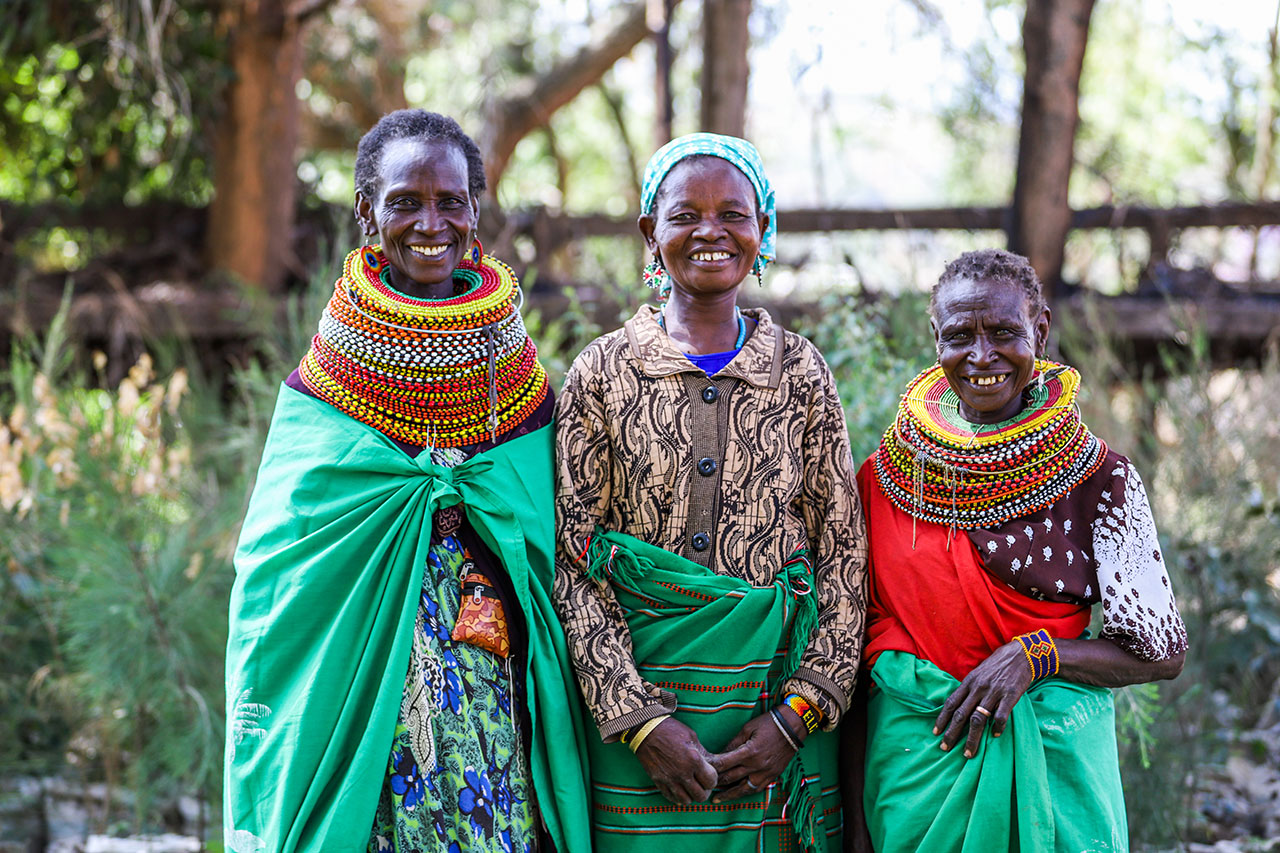
The Mamas of the Environmental Justice Youth Group
The Mamas (older women) of the Environmental Justice Youth Group help in planting trees. These women were the first to start the tree nursery and even taught John Jamaica Lediipo, Samburu County environmental officer, how to plant trees.
From left to right: Ng’athkie Akoriye, Alimlim Lokipeth and Akwanomor Emayie.
“We are happy with what the youth are doing on conservation of the environment. We help them in planting trees and we also have our own tree nursery. We know that environmental conservation is important and we thank PACIDA for their support.” —Alimlim Lokipeth



